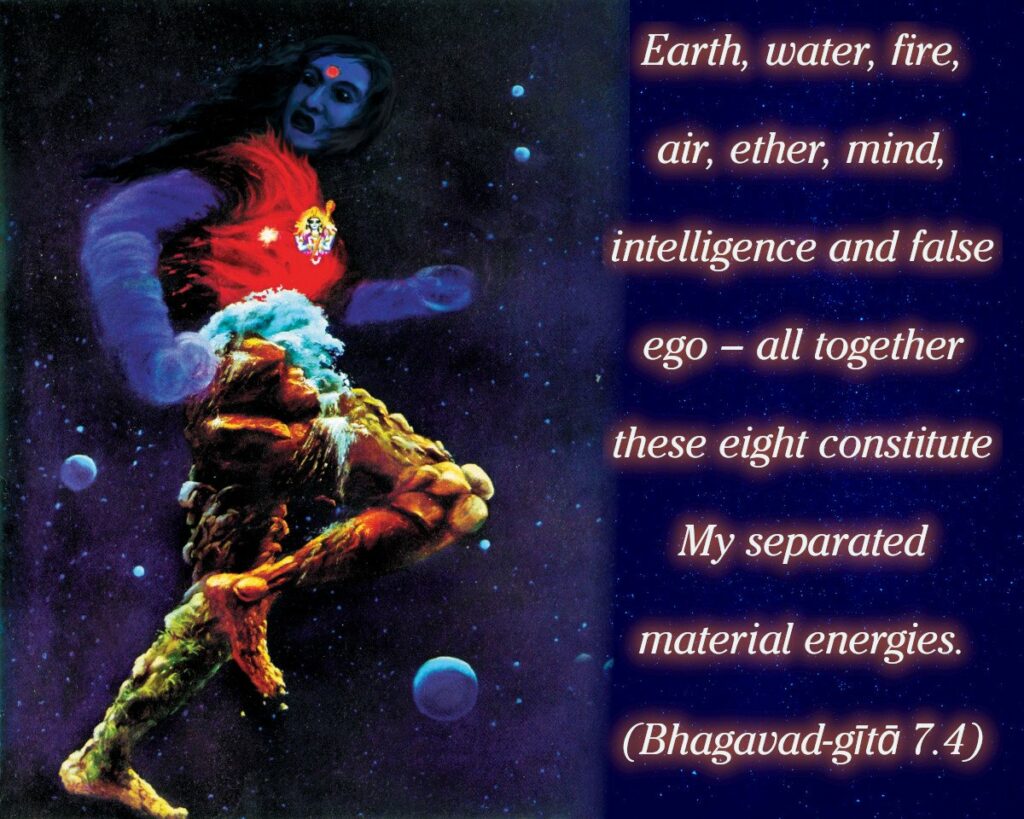भूमिरापोऽनलो वायु: खं मनो बुद्धिरेव च |
अहङ्कार इतीयं मे भिन्ना प्रकृतिरष्टधा || 4||
bhūmir-āpo ’nalo vāyuḥ khaṁ mano buddhir eva cha
ahankāra itīyaṁ me bhinnā prakṛitir aṣhṭadhā
bhūmiḥ—earth; āpaḥ—water; analaḥ—fire; vāyuḥ—air; kham—space; manaḥ—mind; buddhiḥ—intellect; eva—certainly; cha—and; ahankāraḥ—ego; iti—thus; iyam—all these; me—my; bhinnā—divisions; prakṛitiḥ—material energy; aṣhṭadhā—eightfold
Translation:
Earth, water, fire, air, ether, mind, reason, and also egoism – these are the eightfold divisions of My nature.
Commentary:
The five elements, the mind, reason and egoism together constitute the phenomenal aspect of the Lord’s nature. Prakriti (phenominal nature) is gross and so it is Jada (insentient). Purusha, Atma, or Brahman, is the life-principle. Prakriti is the objective universe (drisya) and Purusha is the seer (drik). Prakriti is liable to destruction, but Purusha is eternal. Mind, reason and egoism are also included in Prakrifi along with the grosser elements. The elements are insentient and so the modifications of internal nature are also insentient. When it is known that the mind is insentient, its power and virulence are lost. It is held and controlled like any other material object. The insentient can never have power over the sentient. Those who do not know this secret come under the power of the mind and dance to its tune. So to control the mind, one should clearly distinguish between the gross and the sentient, and between that which is Jada’ and that which is ‘Chit’.
Question: What are the different modifications of the Lord’s phenomenal nature?
Answer: Earth, water, fire, air, ether, mind, reason, and egoism – these constitute the inferior nature (apara prakriti)
Bhagavad Gita: Chapter 7 🔻 (30 Verses)
